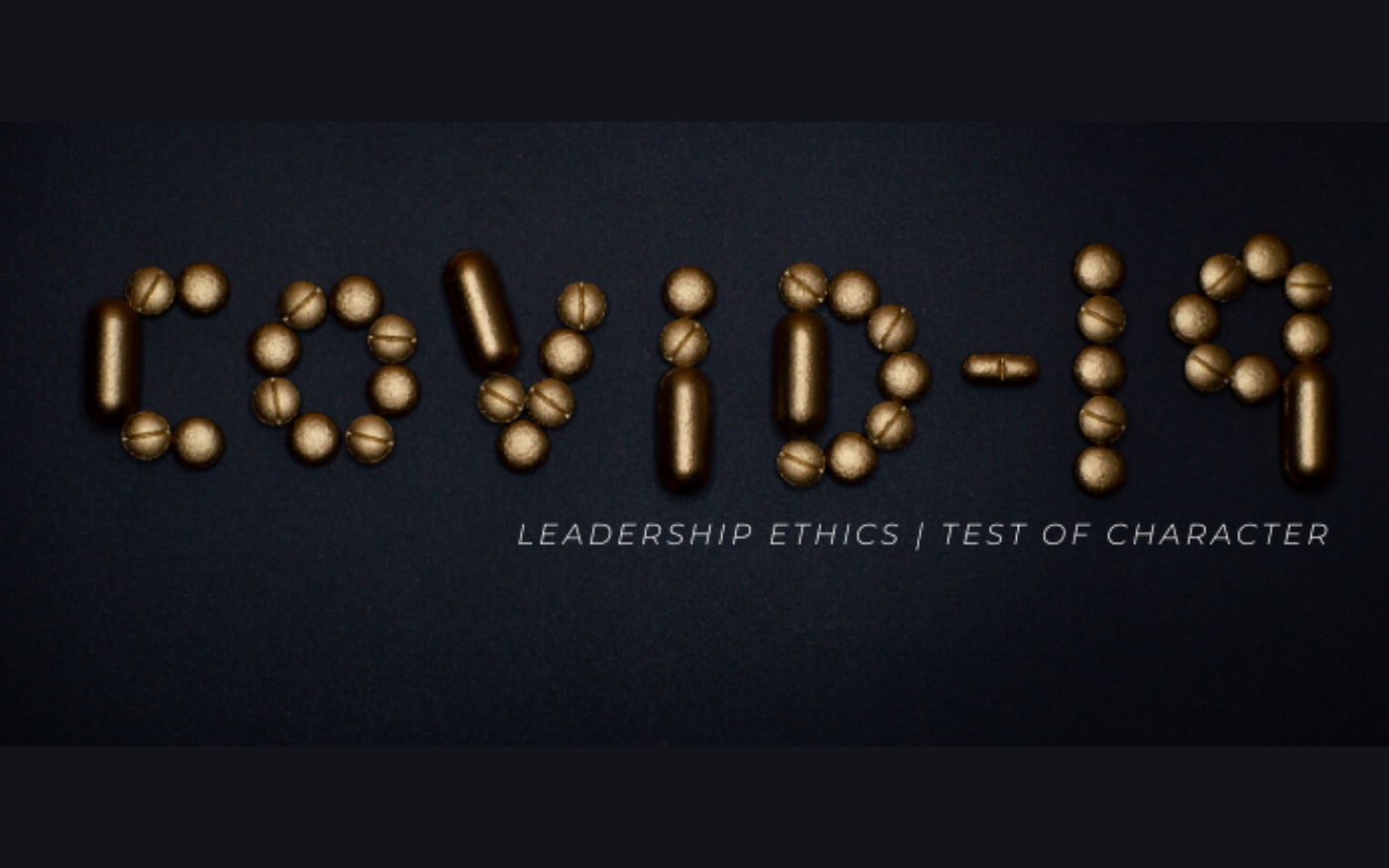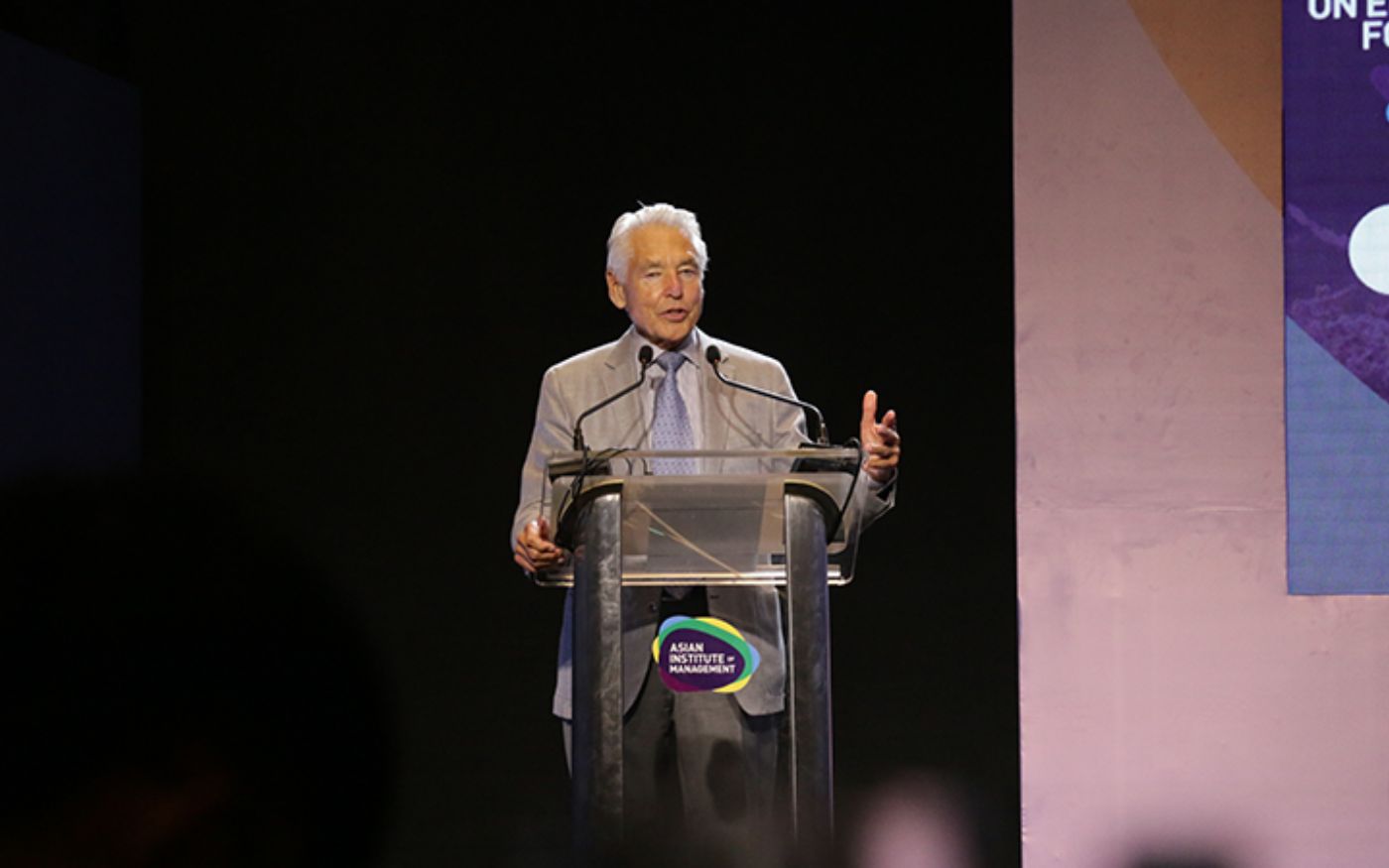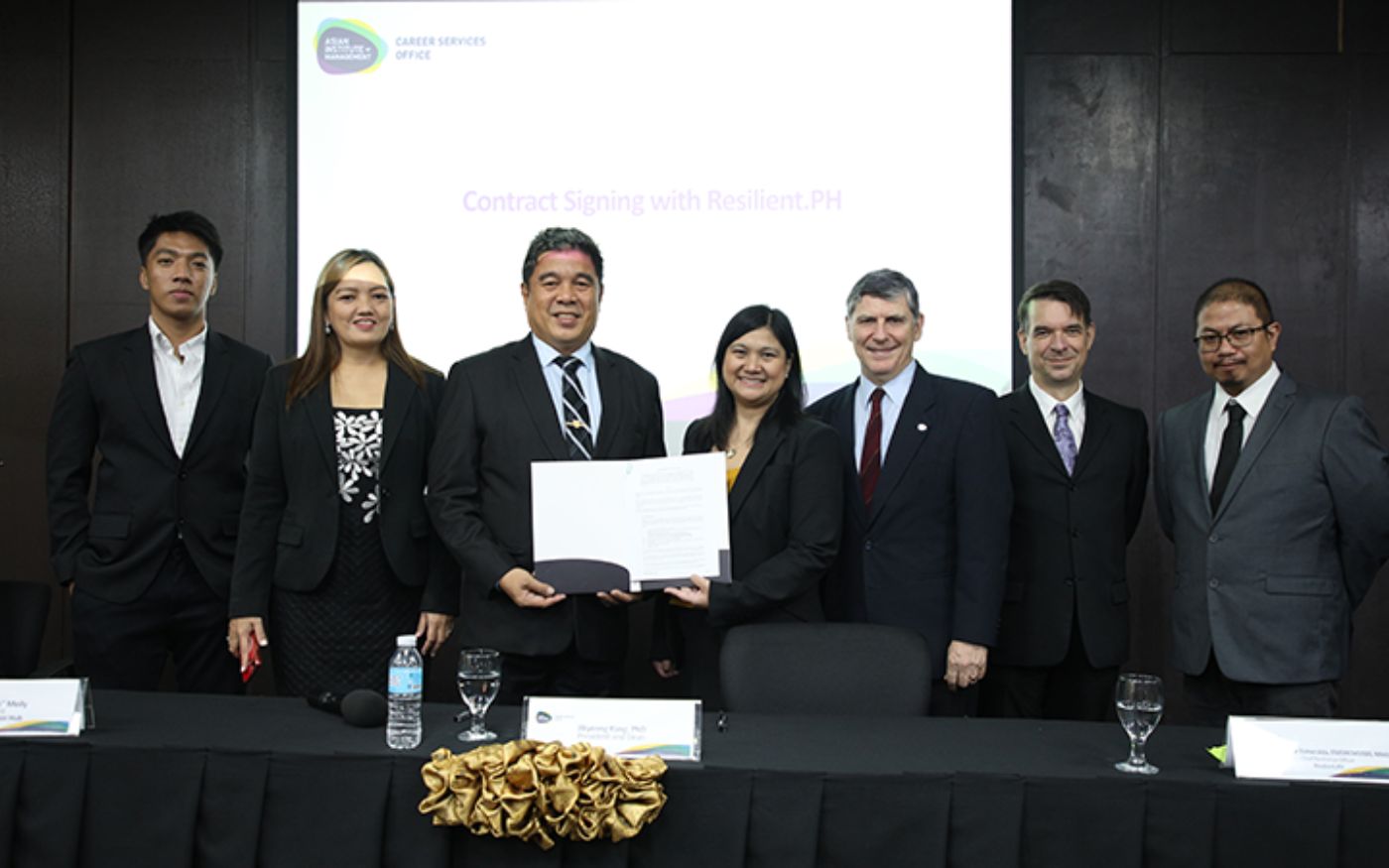An essay by Diwa Gacosta, EMDRCM 2020
Here’s an essay that looks into the moral dilemma and ethical imperatives in making leadership judgement on how to curb the rise of COVID-19 cases despite an ailing healthcare system in the Philippines.
The rise of confirmed COVID-19 cases is alarming. No nation has adequately prepared for the COVID-19 pandemic. Despite the warnings of the potential of SARS, MERS, HIN5, and Ebola to become a pandemic, governments the world over have failed to prepare. But, the battle is not yet over. Today, leaders are called to make hard choices that demand a clear commitment to values, as well as ample resilience, strength of character and leadership capital.
Staggering sweep
Laurie Garrett, senior fellow for Global Health at the Council on Foreign Relations wrote in 2005: “In a pandemic, it is doubtful that any nation would have adequate medical facilities and personnel to meet the extra need” (Garett, 2005). Leaders’ shortsightedness is now incurring massive losses as governments scramble to stem the rising tide of COVID-19 cases, discover a vaccine, and addressing the inability of the hospitals/health facilities to cope with the sudden surge of patients.
Worldwide, confirmed cases now reached a million with over 50,000 COVID-19-related deaths. The Philippines has more than 3,000 confirmed and detected cases and over 100 deaths on record. The significantly lower number of confirmed cases in the country as compared to other countries, is indicative of the limited number of COVID testing conducted by far. As of this writing on 04 April, the country has so far administered tests to of only 5,200 people under investigation which accounts to some 15,000 total tests conducted (DOH, 2020). For a population of over 107 million whose number of asymptomatic people cannot be detected, the number of tests is extremely low.
Yet, even at the current low rate of testing and treatment, Philippine health facilities are struggling to accommodate the surge of people needing assistance for both COVID and non-COVID cases. Numerous reports in traditional and social media have described hospitals shutting down after exceeding their capacity to admit patients; shortages of medical supplies, especially protective gear for frontline health workers, and senior doctors and medical professionals contracting the disease. Modelling based on available data indicates that COVID-19 cases in the Philippines could reach 26,000 by the end of March (Monterola & Legara, 2020), but over 90% of those cases have yet to be detected.
Balancing for the greater good
Asian Institute of Management’s Ethics in Disaster Risk and Crisis Management professor, Dr. Kenneth Hartigan-Go, describes the battle against COVID-19 as a war with many fronts. “This current scenario is a war. We are in the middle or perhaps the beginning of a global war. In war, there are many battles. You can win battles, but still lose the war.” This, he said, is a leadership dilemma.
This current scenario is a war. We are in the middle or perhaps the beginning of a global war. In war, there are many battles. You can win battles, but still lose the war.
~ Dr. Kenneth Hartigan-Go
In this time of crisis, how do leaders make decisions? The idea, the goal, maybe simple. Curb the spread of the disease, until, at least, the vaccines and the cure to eradicate it become available. The reality, however, is not that simple.
Political thinker and philosopher John Stuart Mill’s utilitarian framework holds that the needs of many outweigh the needs of the few. It claims that sacrificing the lives of a few can be ethical when doing so saves the lives of many. The greatest good for the greatest number – this is the ‘moral framework often used to justify force or war’ (McCombs School of Business, n.d.).
President Rodrigo Duterte has declared a state of national emergency and placed the whole of Luzon, including Metro Manila, on enhanced community quarantine. Many provinces across the country have also restricted mobility and imposed community quarantines on various affected areas. Such lockdowns are routinely justified as aiming to “flatten the curve” by delaying the spread of the virus and reducing pressure on our overtaxed health care system. Other narratives, however, contend that such quarantines area also increasing the vulnerability of millions of Filipinos already living on society’s margins, by limiting their ability to work and obtain supplies. Social distancing then becomes a luxury of the more affluent as majority of the poor have no ability to distance themselves. As a local fruit vendor puts it, “you may not die from illness (COVID-19), but you’ll likely die from hunger” (Ravelo, 2020).
Other countries are also taking utilitarian approaches. In the United Kingdom, Prime Minister Boris Johnson initially advocated allowing 40 million British residents to become infected so as to create “herd immunity,” at a potential cost of 400,000 lives due to serious complications (Venkatapuram, 2020). Amidst international outrage, the UK did an about-face and instead adopted a social-distancing strategy to contain the spread of the virus. In China, efforts by the government to suppress information about the looming pandemic early on undoubtedly contributed to higher casualties (Ravelo, 2020). An Italian mayor was criticized for making a comment that says “patients who cannot be treated are left to die” despite the fact that hospitals in Italy now have to choose who among the patients are to be saved and who is not” (Mastrangelo, 2020).
Indeed, over the past weeks, doctors in many parts of the world are making stark choices to save lives while sacrificing many others, including themselves. Doctors and nurses, particularly, are more and more finding themselves in situations where they will have to make the choice which among their patients has the best chances of survival and attend to those. Tough decisions have to be made and as early as now, this thought of deciding who should live is causing them massive emotional and mental stress.
In a recent interview with Rappler, former Health Secretary Manuel Dayrit expressed concern about the insufficient number of ventilators in the country for the anticipated number of serious cases, which he estimated could exceed 3,500. Yet, there are currently only 1,500 ventilators (Rappler, 2020). Similarly, the country only has around 2,315 ICU beds (Phua, Faruq, Shrestha, & Hashmi, 2020). With these numbers, it is not surprising to hear that doctors, nurses, and health care consultants are burdened almost daily by the moral dilemma of choosing who will receive scarce resources for testing, treatment, and ultimately prolonging one’s life, and who will go without.
How do we fight?
We are in a crisis. We are in a war against an enemy we cannot but whose presence is being felt deeply in the society. Utilitarianism may arguably be the most ‘reason-based approach in determining the right and wrong,’ (McCombs School of Business, n.d.) but we should not take the approach as it is. Leadership ethics tells us that we have to strive to look for more balanced solutions and not just outcomes of pragmatic necessity. We need to look beyond the numbers and balance life with life.
Given the scarcity of resources, what alternatives do we have? Is the end to treat EVERYONE the same way irrespective of the likelihood of the outcome? Is the end to try and maximize the greatest NUMBER of lives saved? Is the end to try for a FAIR distribution of resources? Should more resources go to those who need it more? Or should they be equally distributed to everyone? Making those kinds of fine-grained distinctions could lead to scenarios where one has to decide whether to use the last available ventilator for an ICU doctor who could save many more lives down the road versus, say, a street vendor. These are hard questions and a slippery slope toward perpetuating social inequalities.
According to Professor Sridhar Venkatapuram, an associate professor of global health and philosophy at the King’s College London: “Outbreaks and their progression into epidemics and pandemics reflect the way we organize our social institutions and relate to each other. There is much work here for those courageous enough to show how social inequities and injustice produced the outbreak and the way it is progressing” (Venkatapuram, 2020).
Ronald Heifetz, in his book, Leadership Without Easy Answers, mentioned ethics of responsibility, which is taking responsibility the consequences of one’s conduct (Heifetz, 1998). Now is the time to test our whole-of-nation/society approach to resilience to help reduce the need for the kinds of wrenching decisions described above. We have to acknowledge that this crisis will not end in a month’s time. It has yet to peak and the implications on the society and economy, globally, will be felt long term. Now is the time to respond to the immediate needs while preparing for the long haul. Even with lockdowns, good, rational management of the crisis ensure that right resources and information reach the right people at the right time and place. Some steps to achieve this could be:
- Democratize the process and systems. We need to take a participatory approach in determining how we intend to move ahead. Democratizing the process and decentralizing decision-making encourage shared ownership. These, however, should be done with caution and urgency. Leaving egos (and cognitive biases as much as possible) behind, government officials, private businesses, public service providers, civic society organisations, community-based organisations, churches, need to talk, engage, plan and put their acts together to respond to the immediate and prepare for the long term implications of this crisis.
- Pursue evidence-based and data-driven planning and decision-making. Politics breeds shortsightedness (Garett, 2005). It is critical for all of the society, especially the government, to act together swiftly. Shortsightedness, biases and prejudices can be managed (if not totally avoided) by having transparent and credible data-driven planning and decision-making.
- Reinforce risk communications and community engagement. Ebola in Liberia was eradicated not by rigid government and military action, but by the collective effort of the Liberian communities and partners (Mukpo, 2015). World Vision, for example, has enhanced its community engagement efforts to bring more focus on community prevention and mitigation of the spread of COVID by working with the communities improve their water, sanitation and health facilities and practices. In a similar manner, Philippines may have bigger chances of winning this battle if the communities across the country are engaged. There are pockets of effective community engagement and creative solutions emerging at the local level. These should be encouraged and supported. The people need to understand why we are in a war and how we can win, together, not by force, but by mutual and collective understanding and action emanating from both the grassroots and those from the top. To sustain efforts for the long haul, we need to recognise and empower communities, and not exclude them in the decision-making process.
Guiding and encouraging people not to lose hope as they navigate the uncertain future is the burden leaders are called to carry. There is the need to communicate straightforwardly the risks and responses, but there is also a bigger need to convey messages of comfort, empathy, and hope.
______
This essay was written based on class discussions on Ethical Leadership and Social Responsibility in Disaster Risk and Crisis Management of the Asian Institute of Management.
Works cited
Parkinson, J. E. (2012). The Democratic Imperative: Beyond Social Responsibility. In J. E. Parkinson, Corporate Power and Responsibility. Oxford Scholarship Online.
Phua, J., Faruq, M. O., Shrestha, B. R., & Hashmi, M. (2020, January). Critical Care Bed Capacity in Asian Countries and Regions. Critical Care Medicine.
Garett, L. (2005, July). The Next Pandemic. Foreign Affairs, 84(4), pp. 3-23.
DOH. (2020, March 29). Retrieved March 2020, from Department of Health NCOV Tracker: https://ncovtracker.doh.gov.ph/
Monterola, C., & Legara, E. F. (2020, March 14). [ANALYSIS] Coronavirus cases in PH could reach 26,000 by end-March if random spread not contained. Retrieved from Rappler: https://www.rappler.com/thought-leaders/254810-coronavirus-cases-philippines-by-end-march-2020-random-spread-not-contained
McCombs School of Business. (n.d.). Utilitarianism. Retrieved March 2020, from Ethics Unwrapped: https://ethicsunwrapped.utexas.edu/glossary/utilitarianism
Ravelo, J. L. (2020, March 24). To contain the spread of coronavirus, Manila grapples with lockdown. Retrieved from Devex: https://www.devex.com/news/to-contain-the-spread-of-coronavirus-manila-grapples-with-lockdown-96823
Venkatapuram, S. (2020, March 19). COVID-19 and the Global Ethics Freefall . Retrieved from The Hastings Center: https://www.thehastingscenter.org/covid-19-and-the-global-ethics-freefall/
Mastrangelo, A. (2020, March 11). Italian Mayor: Coronavirus ‘Patients Who Cannot Be Treated Are Left to Die’ . Retrieved from Breitbart: https://www.breitbart.com/europe/2020/03/11/italian-mayor-coronavirus-patients-who-cannot-be-treated-are-left-to-die/
Rappler. (2020, March 27). Rappler Talk: Data and facts – what the PH can do to deal with coronavirus . Retrieved from Rappler: https://www.rappler.com/nation/256120-interview-erika-legara-manuel-dayrit-what-philippines-can-do-coming-deal-with-coronavirus-covid-19?fbclid=IwAR2y9xVHhR8kfj-X0VjDIWxBLcnrs-ytWJ6sisxkf59k6f09TqE0fXJZB58
Mukpo, A. (2015). Surviving Ebola: Public perceptions of governance and the outbreak response in Liberia. International Alert.
Heifetz, R. (1998). The Personal Challenge. In R. Heifetz, Leadership Without Easy Answers (pp. 250-276). Harvard University Press.
Link to article: https://go.aim.edu/diwagacostaarticle





